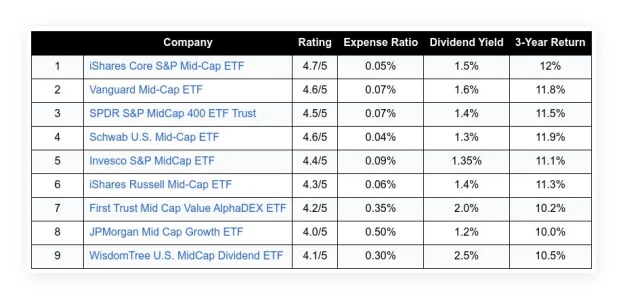Have you ever heard of market signaling? The term describes actions that demonstrate desirable traits to employers, partners, stakeholders, and university admissions officers. Michael Spence introduced the concept in his Nobel Prize-winning economic work, which showed how educational degrees act like smart investments. An elite education sends powerful signals about an individual’s intelligence, persistence, and capability.
From the ancient days of Rome to the modern household, people know those signals that display status. In our time, educational credentials are one of the biggest signals associated with financial success. A parent’s commitment to their child’s education enhances a child’s future, as well as the family legacy. It also offers a high-yielding investment. Strangely enough, and in sharp contrast, most subjects can now be learned online—often at no cost. It’s wise to understand why an investment in higher education is still worth it.
When you’re thrown into a world of no-cost courses and AI tutors, you can gain access to the same knowledge as any Ivy League professor, if not more. Locally, a community college often covers the same material as elite universities. It begs the question: Is investing upwards of $400,000 for an Ivy League degree savvy, knowing the same knowledge is available for a fraction of the cost? If you feel something isn’t adding up, you’re correct, at first glance. However, the first glance doesn’t tell the whole story without going a step deeper.
Table of Contents
ToggleSignaling Value
In the deeper context, you need to think of signaling value, which addresses an individual’s marketing and psychological aspects. Elite credentials provide value by serving as powerful market differentiators with exceptional returns. Take your Harvard degree, for example. Its most significant value is not in the course content received. It is in the story behind making it through their strenuous admission process. Elite is selective, not opening its doors to anyone. Those who are accepted bring a wealth of desirable qualities, akin to an investment club where membership creates compounding returns.
Education has caught on to this, shifting its views. With such a financially significant role in family planning, parents need to know how to look deeper into what the value of an education means for their child and how it aligns with a financial payoff for the long term. This starts at home. Parents who understand why maximizing their child’s future earning potential do recognize they aren’t primarily paying for information or knowledge; they’re participating in a sophisticated asset-building strategy centered on market signaling—the 2.0 version.
Ways We View Knowledge and Financial Success
Social class often shapes how families view education as an investment vehicle. Education can feel like a steep expense for those struggling financially with uncertain returns. Parents’ concern over money dictates their children’s opportunities from an early age onward. Middle-class parents usually focus on academic content. This could include curricula, test scores, and classroom size as their metrics for potential value. Yes, these are important; however, prepared parents recognize the value of an alternative pathway to achieve higher family wealth. These families prioritize selective programs, brand-name institutions, and prestigious extracurriculars because they can help deliver outsized returns compared to their cost.
A notable quality of a wealthy family—mindset, finances, or both—is that they view elite education as an appreciating asset. They understand the law of supply and demand based on scarcity, which lies in institutional validation, plus market signaling power, networks, and an ability to leverage those assets to the next larger wealth-building opportunity: college admissions, followed by the career marketplace.
The Financial Advantage of Educational Signaling
Today, market signaling translates into educational signaling. Within this context, the unspoken truth about why companies pay premium salaries to graduates from top universities exists. Despite knowing graduates from elite institutions often aren’t job-ready and require months of expensive training, employers still overwhelmingly prefer them. Why would this be the case? A degree from a top university signals valuable character traits—persistence, adaptability, resilience, and social fluency—not just academic wherewithal. These traits also translate into higher compensation packages and accelerated career advancement.
Resume of Achievements
Parents start this process early by building a resume of achievements for their children in areas like Eagle Scout, competitive chess, advanced piano or violin, or winning a spelling bee. These financially astute parents understand that elite universities don’t value the knot-tying skills or obscure vocabulary per se; they prize the discipline, leadership, and rare traits needed to earn those accolades. These accomplishments are shorthand for qualities that are hard to quantify in a college application. Yet, they pay dividends throughout a career. We call this the 1.0 version of market signaling. It’s useful but antiquated; it’s time for the next version, market signaling 2.0. Families who understand they are investing in signals know they focus on an ROI, which benefits their children, future gatekeepers, and employers.
The validation from recognized institutions or esteemed organizations is increasingly scarce, which means it is also highly valuable as a wealth-generating asset. Consider elite fields like investment banking, medicine, law, STEM, or product management, where many clamor for the rare, prestigious opportunities. The biggest obstacle in these fields is gaining market entry. The credentials from an elite university help you conquer the most challenging part: gaining that entry. You pay a financial price, yet once you’re in, it becomes easier to move up or laterally within high-paying circles, creating exponential returns on the initial educational investment that far outpace traditional financial markets.
Early Signals Shape Lifelong Wealth Creation
The evolution to market signaling 2.0 has pioneered a pathway where early admissions into selective programs are the foundation for future financial success. This wealth-building advantage begins early on, or at least by high school. Admission into selective pre-college programs can create distinction and boost future college applications and outcomes, which translates into the child’s lifetime earning potential. These programs are valuable as more than a resume item—they are high-ROI investments that can yield returns for decades.
Education experts are now formalizing what financially savvy parents have been doing for years: placing value on what CollegeVine calls Tier 1 extracurricular activities, which include exceptional, global/national-level achievements. This goes to Tier 4, which would be more aligned with common participation without distinction, such as classroom participation. This creates a competitive market dynamic: if some students have Tier 1 signaling credentials, they have noted advantages in finding rewarding career opportunities with wealth advantages. The financial gap between these tiers can translate to millions in lifetime earnings.
Programs and Institutions
Programs like RSI, GYEL, Bank of America Student Leaders, BU RISE, NASA OSTEM Internship, Penn’s Leadership in the Business World, and M&TSI offer brand-name endorsements linked to potential and prosperity. By embracing these opportunities, families can leverage these opportunities to “level up” to the next higher wealth-building opportunity. Students accepted into these top programs find it easier to achieve their next level, which creates a cascading series of advantages, such as being accepted to a top university and having career prospects with superior compensation.
Each selective step is a rung on the ladder of the student’s financial possibilities, which is why the first rung is the most critical financial decision in a student’s journey. Parents should encourage strategic moves as an investment in the long-term wealth strategy of their family line. Market signaling 2.0 takes the wisdom the wealthy have understood for centuries and invites it into today’s high-tech, fast-paced world.
You Hold the Power of the Future
Understanding this signaling marketplace is essential for families who make smart financial decisions about education. Free information is nice, but is it valuable? The knowledge to best apply it comes with the price of the correct credentials. This is how parents cultivate the legacy they’ve begun—by ensuring their children have an advantage in their wealth-generating potential. The opportunity to do this has never been greater than it is today in our market signaling 2.0 world.
Featured Image Credit: Photo by August de Richelieu; Pexels; Thanks!















